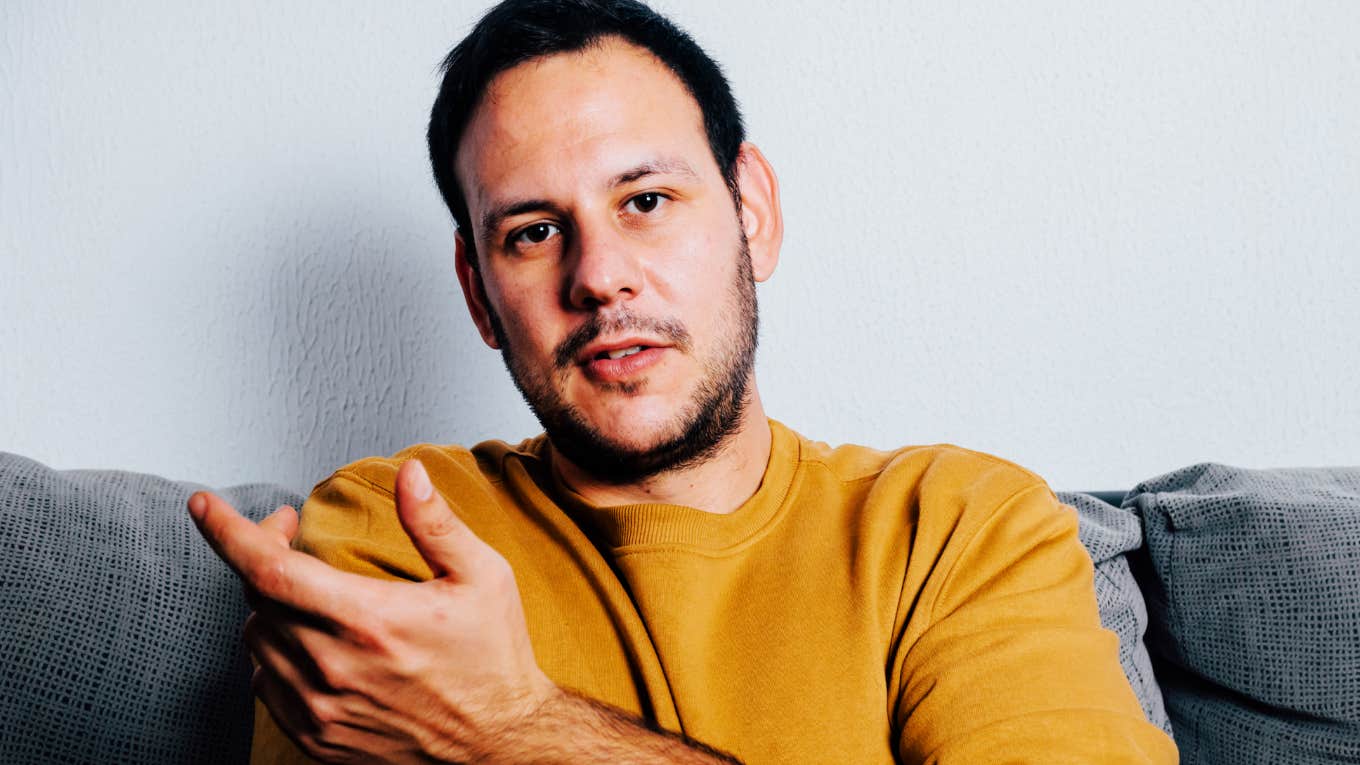9 Fights Smart Couples Won't Waste Their Time Having
Every couple fights, but these fights are never worth it.
 The Carlos Gutierrez Collection | Canva
The Carlos Gutierrez Collection | Canva Just because everyone fights about something doesn’t mean it’s important. A lot of us distract ourselves with things that don’t matter in life, and relationships, and then get tangled up in a positive-feedback loop by pointing to everyone else who’s doing the same thing.
Even if something bothers everyone else (and your mom and best friend totally agree you were in the right), that doesn’t mean you should tie your insecurities up in it and make it into an ongoing thing.
Here are 9 fights smart couples won't waste their time having:
1. How they dress or what they eat
Emotionally secure people don’t feel compelled to play parent to their partner. If you’re concerned about their health or hygiene, that’s one thing, but we shouldn’t be nitpicking our partners on their choice of clothing or food. Healthy couples love and respect each other as individual people.
2. How much time do you spend together
 bbernard via Shutterstock
bbernard via Shutterstock
Or how often they text and whether it's every day. Healthy couples spend time together and communicate, but healthy couples are also able to strike a reasonable compromise that works for both people.
3. What you do or where you go
I mean, obviously, compromise here — nobody should be getting their way all the time, or feeling as though they never get to pick. But wow, that’s pretty much settled if you go in having section 1 in order.
4. Household habits
I’m going to be honest, nobody should be fighting about a toilet seat. If you’ve made the toilet into that big of a deal and have this many emotions around it, there’s some serious reassessment in order.
The same goes for chores. Guys, chores are one of those things that just sort of have to happen in life. They are the background to domestic life, not the end-all, be-all of anything. And they definitely should not occupy any serious headspace.
And if you are honestly still fighting about the toothpaste, here’s a pro tip: buy two! This is what The Boy and I did because I’m the one who leaves the tip toothpaste-y and only loosely capped. So we each have our tube, and it’s pure non-marital bliss.
5. Cleanliness
Look, here’s something we all just need to accept: two people will pretty much never have the same standards of cleanliness. So to one person, the other will always be a slob. To the slob, the other will be a control freak. I have been both, depending on the relationship.
We all need to get over the fact that our partner isn’t going to mirror our exact viewpoint, both compromise and meet halfway, and move on.
"Even if the two of you have divided up the chores perfectly, you’re going to be unhappy if you need help, love, or support at the moment and your partner isn’t there," advised marriage therapist Frances Patton. "So, start by negotiating how you will divide the labor. Make it fair and do your share. But, go the extra mile to take some of that burden off of your partner."
6. Romance
Good relationships are not built on being wined and dined. The minute we make it about date nights and feeling special and dressing up, especially if we start going head to head with our partner on it, is the minute we need to ask ourselves: why is this so important? What need are we bundling into this? Have we done our work to get it met? Can we ask in other ways, or get it done in other ways?
7. Who ate the last donut
Or those leftovers you were saving. Or stealing a fry from your plate.
I’ve heard people consider these deal-breakers, and to be honest, I am truly astounded they’d break up over bagels or bánh mì. Like, there isn't any food worth more than a partner.
Even the big things aren’t the important things.
8. Money
 PeopleImages.com - Yuri A via Shutterstock
PeopleImages.com - Yuri A via Shutterstock
Who pays for what, where the money is going, etc.
Some people will read this and immediately bristle and go on the defensive — “money does matter!” “It’s the most common fight!” If you did that, I suggest re-reading the first two sections again. And understand what you’ve done here with the money.
Money is, it’s true, a foundation of our lives — at the very least, we need it for procuring food and shelter, and it can certainly afford us many other comforts and be leveraged in countless ways. So yes, it matters when it comes to life and existing in society. It’s a constant in our daily lives. And, as such, it is a constant in our relationships.
The problem is when we then load it up with our insecurities. Mostly feeling as though we don’t have enough, and/or want more.
Understandably, people would do this. But that doesn’t mean it’s healthy or right. And when you add your partner into the mix, it can be hard to separate anxiety over money from anxiety about your partner.
Money isn’t going anywhere, and we all have to figure out a healthy relationship with it. Good partners, wealthy or not, figure this out together as well.
9. Intimacy
Again, like cleanliness, it is rare that two people have the same intimacy needs. We all have to compromise here — the person with more intimacy needs will have to soften. The other person can make headway by embracing and seeing intimacy not as a gesture or connection of love.
Nobody is suggesting you be intimate when you don’t want to. Rather, the suggestion is to want to share intimacy as a human need. A lack of intimacy is a leading cause for divorce, so the Global Journal of Health Science explored various effective steps to take to enhance marital intimacy and strengthen family bonds and stability.
Then what is important?
It’s life, and it’s love. It’s growing as individuals — investing in our development and supporting each other. It’s choosing vocations that excite you and throwing ourselves at them. It’s building something, both separately and together. It’s learning, reading, challenging ourselves, and each other. It’s being present in our own lives and, to the extent that it works, in theirs too. It’s living.
What’s left is: everything that matters: Healthy debate, independent interests, self-examination, risk, growth, adventure, critical thought, discussion, ideas, support, etc. Anything you want based on good, healthy values, which are always more than texts and toilet seats.
Healthy couples don’t fight — they discuss.
Of course, there’s still going to be an occasional spark reaction of emotion, but this shouldn’t be their default way of communicating. It should be accidental and, ideally, it should be tempered (and backburnered) until both parties are ready to talk calmly. No healthy relationship is built on communication through emotional force.
"What matters is how partners respond to negative emotions in the relationship," explained the Gottman Institute, "If couples see the conflict as an opportunity for growth, they can attune to each other and increase their understanding of one another, deepening their trust in each other and the relationship. If partners dismiss the negative emotions in these situations, they may eventually reconnect with one another, but trust will erode a little."
When both people are emotionally healthy, truly care about their partner, and understand what matters, they don’t have to come into conversations on the defense, guns blazing, fired up on getting their point across or getting heard.
Because they feel confident their partner will hear and care about them, without having to yell, and they care equally much about hearing their partner’s side. If either of you thinks in terms of winner and loser, you’re both losing.
Healthy couples love — they love themselves, first and foremost, and they love each other, as people.
They understand their own needs and do the majority of the work in getting them met, which means they approach their partners warmly and openly, with space to understand and honor their needs as well. In healthy relationships, both people do this.
So when disagreements do come up, they both have a solid emotional foundation to work through them healthily.
Kris Gage is a contributor to Yourtango who writes on mental health and happiness.

